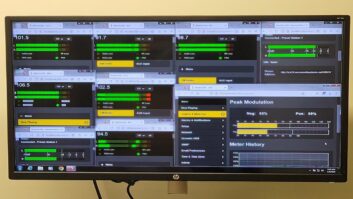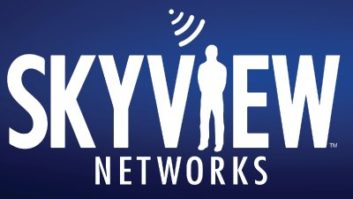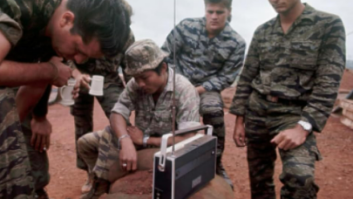This story originally appeared in TV Technology.
WASHINGTON: LightSquared is not giving up on its proposed wireless broadband network despite losing its authority to launch on a terrestrial infrastructure.
“LightSquared is confident that the parties will continue the on-going efforts to explore all engineering options and alternatives to find a solution to this difficult issue,” the Reston, Va., company said in a statement.
LightSquared contends that the federal agencies testing its proposed 4G LTE network relied on flawed data. The National Telecommunications and Information Administration last night recommended that LightSquared not be allowed to commence terrestrial operations due to interference with global positioning systems.
“Based on the NTIA’s independent evaluation of the testing and analysis performed over the last several months, we conclude that LightSquared’s proposed mobile broadband network will impact GPS services and that there is no practical way to mitigate the potential interference at this time,” wrote NTIA Assistant Secretary Lawrence Strickling in a letter to Julius Genachowski, chairman of the Federal Communications Commission. The FCC in turn said it would not let LightSquared launch.
“The commission will not lift the prohibition on LightSquared,” said the FCC’s Tammy Sun.
The prohibition refers to a conditional waiver LightSquared received about a year ago from the FCC. The waiver would have allowed it to operate terrestrial transmitters in L-band spectrum–which is designated primarily for satellite operations—as long as it didn’t interfere with GPS devices. Tests indicated LightSquared’s transmissions don’t bleed into the adjacent L-band spectrum used by GPS devices; rather, those devices are not designed to reject terrestrial network interference. LightSquared campaigned to equip GPS devices with signal rejection filters.
Strickling acknowledged that filters would work on consumer GPS devices, but outfitting every one already in the market would be a logistical nightmare.
“While GPS equipment developers may be able to mitigate these issues via new technology in the future, the time and money required for federal commercial and private sector users to replace technology in the field and in the marketplace, on aircraft and in integrated national security systems cannot support the scheduled deployment of terrestrial services proposed by LightSquared,” he wrote.
LightSquared recently asked the FCC to make a declaratory ruling that GPS devices had no right to interference protection from operations outside their assigned spectrum. The FCC’s International Bureau instead is proposing to vacate the conditional waiver and indefinitely suspend LightSquared’s authority to build a terrestrial network in the L-band.
It is unclear how LightSquared will proceed since its operating model relied on a terrestrial network, with satellite transmissions filling in coverage gaps. The venture represents the primary investment of Harbinger Capital, which has put at least $3 billion toward it. A New York-based hedge fund managed by Phil Falcone, Harbinger lost 47 percent last year on LightSquared, according to Bloomberg. The news service today reported that one investor, the Jefferies Group, is spreading the risk of a $190 million loan to Harbinger with a syndication deal that defaults if Falcone is indicted. He and other Harbinger principals are the target of a fraud probe by the Securities and Exchange Commission, The Wall Street Journal said in December. A company executive said last month that LightSquared had enough money to last “several quarters.”
LightSquared’s reaction last night to the NTIA’s conclusion reflects its contention that tests were “rigged” against it: “The FCC should take the NTIA’s recommendation with a generous helping of salt,” the company said.
Both the NTIA and the FCC agreed with LightSquared that GPS receiver standards should be established.
“NTIA recognizes the importance that receiver standards could play as a part of a forward-looking model for spectrum management even beyond the immediate issue of GPS,” Strickling wrote.
Strickling said the NTIA would ask the Department of Transportation to “initiate an effort to examine what changes could be made to the existing standard to eventually make certified GPS aviation receivers compatible with a signal in the lower 10 MHz,” where LightSquared proposed to operate. “NTIA will work with federal agencies to review receiver requirements for federal systems.”
The FCC’s Sun said the proceeding “revealed challenges to removing regulatory barriers on spectrum that restrict use of that spectrum for mobile broadband. This includes receivers that pick up signals from spectrum uses in neighboring bands… Congress, the FCC, other federal agencies, and private sector stakeholders must work together in a concerted effort to reduce regulatory barriers and free up spectrum for mobile broadband. Part of this effort should address receiver performance.”
Sun said the FCC would issue a Public Notice seeking comment on NTIA’s conclusions, and its proposals regarding LightSquared today.
~ Deborah D. McAdams












